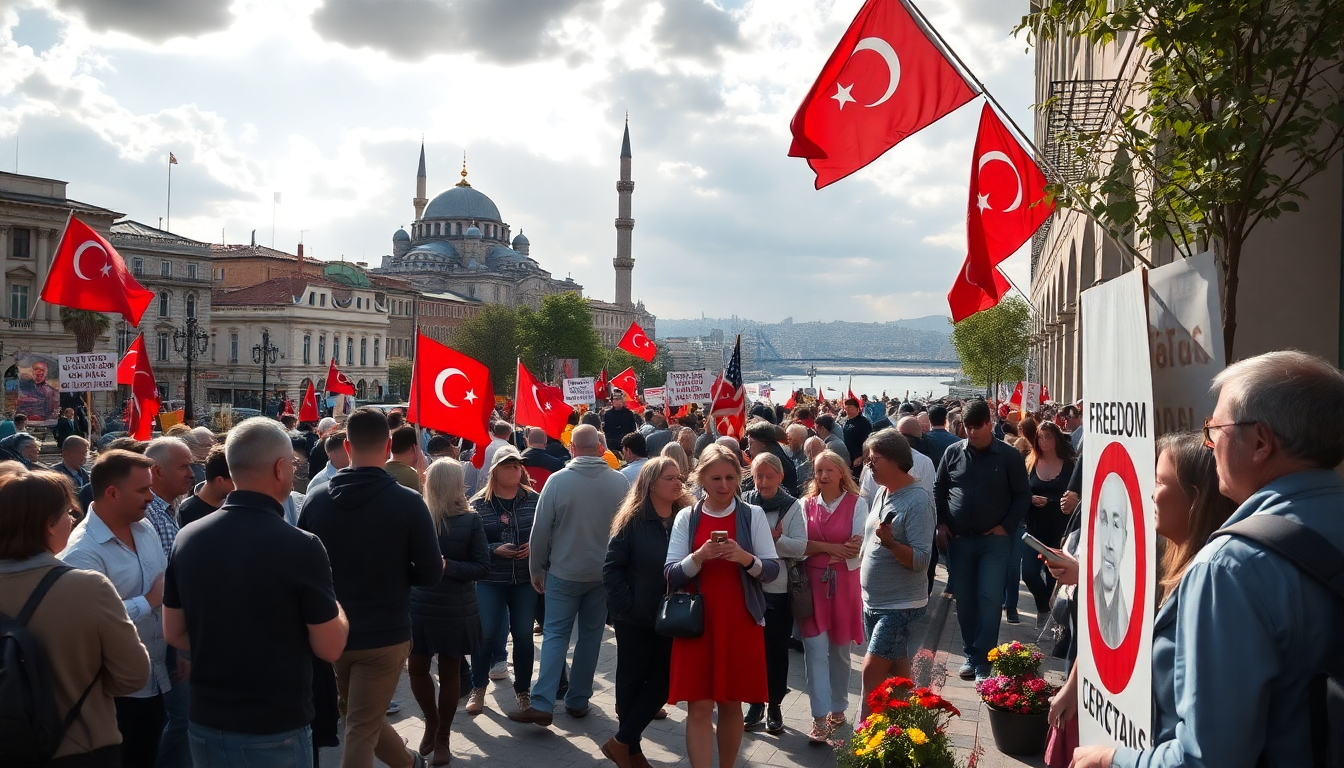Table of Contents
In the midst of Turkey’s turbulent political landscape, recent events have thrown the ongoing struggle between the government and its opposition into sharp relief. The sentencing of Ekrem Imamoglu, the mayor of Istanbul and a key figure in the opposition, raises serious concerns about political repression in the country. What does this mean for the future of democracy in Turkey?
Political repression and its implications
Ekrem Imamoglu, who has been serving as the mayor of Istanbul since 2019, received a 20-month prison sentence on charges of insulting and threatening a city prosecutor. This decision comes as part of a broader crackdown on political adversaries by President Recep Tayyip Erdogan, sparking widespread protests across Turkey. Imamoglu’s sentencing follows his earlier detention on unrelated corruption charges, and he plans to appeal this latest ruling. But what does this mean for the average citizen?
Imamoglu’s situation reflects a troubling pattern of political repression that has been escalating in Turkey. His assertion, “I’ve been fighting against the abuse of the judiciary and against its use as a political tool,” resonates with many who believe the judiciary is being weaponized against political opponents. Such actions not only threaten the integrity of Turkey’s political system but also erode public trust in judicial independence. Can a democracy thrive when its legal system is perceived as biased?
Furthermore, Imamoglu’s prior conviction for criticizing election officials over the annulment of the 2019 Istanbul election raises significant concerns about the potential for his disqualification from future elections. This would further marginalize opposition voices. Adding to the complexity, the recent revocation of his university diploma by Istanbul University could potentially bar him from running for president altogether. This series of events paints a bleak picture for opposition figures in Turkey.
The response from the opposition and public sentiment
In the face of these challenges, Imamoglu’s defiance is particularly striking. He boldly stated, “We are up against a huge bully, but I will not back down.” These words resonate not only with his supporters but also with a larger constituency that feels increasingly threatened by authoritarian governance. The public reaction to Imamoglu’s sentencing has been one of outrage, sparking protests that highlight a growing discontent with Erdogan’s administration. How long can this unrest continue to build?
Many Turks are deeply worried about the implications of such political maneuvers on their civil liberties and democratic processes. The government’s crackdown has led to over 200 individuals being jailed pending trial, with hundreds more detained in investigations connected to municipalities run by the opposition CHP party. This atmosphere fosters a culture of fear, where political dissent is met with harsh consequences. Is this the kind of environment we want to live in?
As the opposition navigates these treacherous waters, solidarity among various political factions may become essential. The potential for a united front against what many perceive as a systematic dismantling of democracy could play a crucial role in shaping Turkey’s future political landscape.
Looking ahead: the future of Turkey’s political landscape
As Turkey moves forward, the implications of Imamoglu’s sentencing are significant. The trend of increased political repression could lead to a growing divide between the electorate and the government, prompting a reevaluation of the electoral process. The current political climate suggests that the road ahead will be fraught with challenges, not just for Imamoglu, but for the broader opposition as well.
While Erdogan’s administration dismisses claims of political motivations behind the charges against Imamoglu, the government continues to push its narrative. However, the mounting cases against opposition figures may attract greater scrutiny from international observers and human rights organizations, potentially affecting Turkey’s diplomatic relations. What will it take for the international community to respond?
In conclusion, the unfolding events in Turkey underscore the delicate balance between governance and civil liberties. As the political landscape continues to evolve, the resilience of opposition figures like Ekrem Imamoglu will be put to the test, and the response from the Turkish populace will be crucial in determining the future trajectory of the nation’s democracy.


